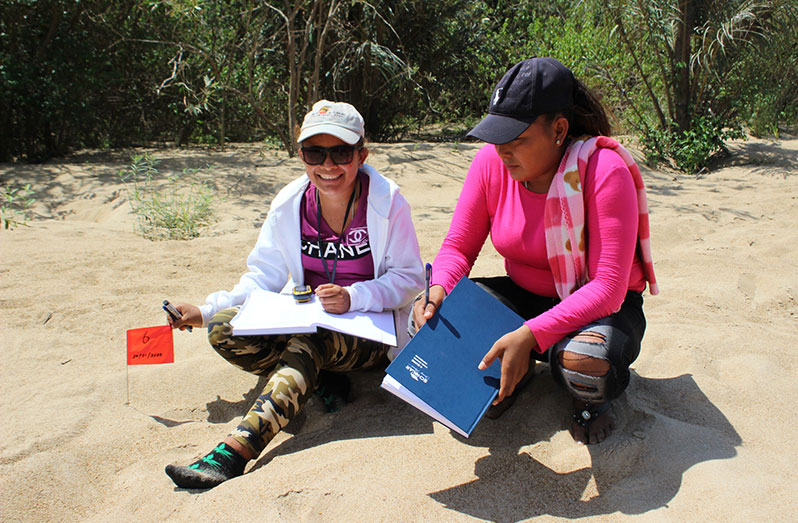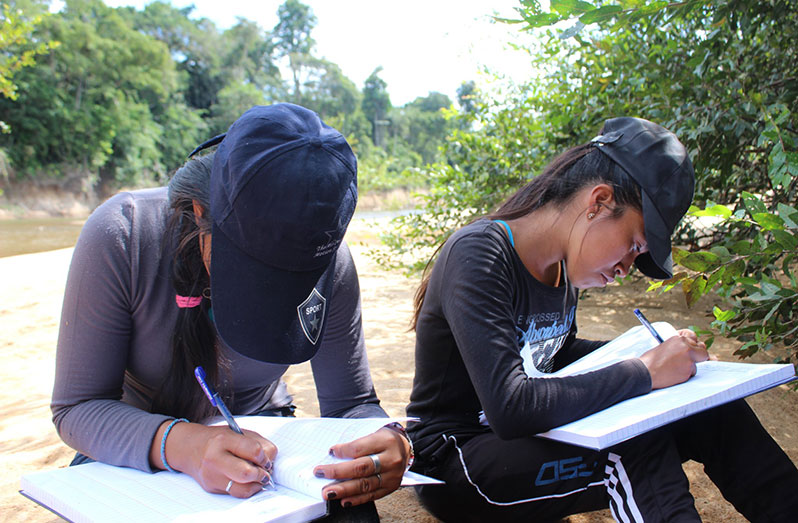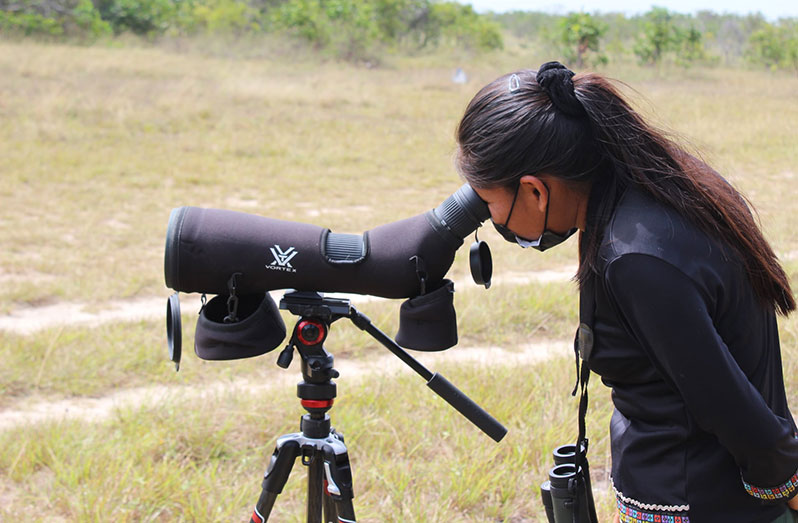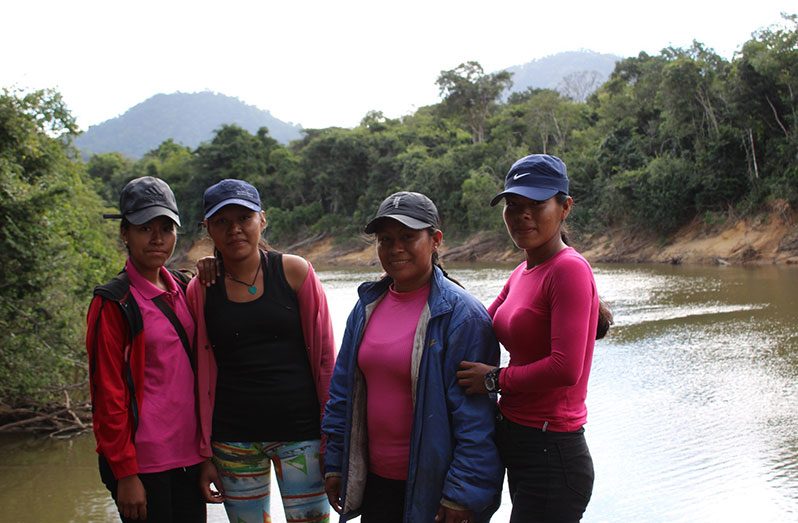HAZELITHA Bernadine knows all too well the challenges and barriers that females face in becoming wildlife rangers, especially the stigma that exists globally and right here in Guyana – even in the Rupununi – that females somehow are unable to go out and conduct fieldwork or are unable to deliver the quality of work that males might be able to.
She is among the 17 other female rangers who participate in monthly field trips with the South Rupununi Conservation Society (SRCS) and will participate in World Female Ranger Week from June 23 to 30 – an event intended to highlight the challenges encountered by females and create change.

Bernadine, an SRCS Turtle Ranger from Sand Creek, is especially happy to participate. In the Rupununi, she has seen how most men and even many women believe that females should stay at home while the men go and complete conservation work in the field.
“Even if a female is included in a team, it is often in a role such as camp cook, where they are not actively involved in the fieldwork,” Bernadine expressed. She’s also personally experienced how organisations and even village leaders would disregard women when recruiting persons for jobs as they think they are not capable of completing the work.
Tabitha Rebeiro is another SRCS Turtle Ranger from Sand Creek who spoke about other challenges that female rangers experience. “When females in the Rupununi want to go out in the field, they are often put off by stories about what might happen to them, including harassment from males. There are many instances where this is true and therefore, when incidents happen, it puts a lot of women off from joining fieldwork activities.”

Further, SRCS Red Siskin Ranger Claudia Bernard pointed out how in the Rupununi, there is a high rate of teenage pregnancy. “Once a female has become a mother in the Rupununi, this can often prevent them from joining field activities as they have no one to look after their child while they are away.”
It is expected that these and other issues would be brought to light during World Female Ranger Week, an initiative dedicated to increasing awareness for the need for gender equality in conservation by providing a platform for female rangers to share their experiences, challenges and successes and helping female rangers from around the world to connect with each other.
“At SRCS, we realise that there is a lot that needs to be done for there to be gender equality in the field of wildlife conservation. Therefore as part of the week, we will share stories from our female rangers on their experiences and the issues they think need to be tackled,” SRCS Programme Coordinator Neal Millar noted.

SRCS has been making an effort to improve gender equality. For example, it has introduced a childcare stipend which comes in handy for a mother with a young child or children, who may be recruited to do field world. This stipend, to pay a babysitter, is given in addition to what the ranger earns in the field.
Also, Millar noted that SRCS actively advocates for gender equality in all of its projects. “Whenever new rangers are needed from a community, SRCS will request that a gender-balanced team is selected by the village leaders. Further, SRCS ensures that females are given the same role as men and that all responsibilities are divided equally.”
He said SRCS makes it clear to their rangers that they have a zero-tolerance for harassment of any kind. “Due to this, SRCS has built a great reputation in the Rupununi where females want to work with the organisation because they know it will be safe for them.”
Millar said the contributions of the female rangers are invaluable as they often bring knowledge and experience that male rangers do not possess. “There is a famous example of the first female ornithologist discovering that male and female birds had different calls – something that had gone undetected by male ornithologists for decades and changed the field of ornithology,” he pointed out.
A major part of conservation, he expressed, is behaviour change – to help people to alter their actions that are negative for wildlife and the environment. “If we only involve male rangers, we are missing half of the population, and we will never be able to make a sustained difference. Our female rangers are also helping to inspire the next generation. Our current female rangers did not really have many role models to look up to as they were growing up. However, now young girls see these female rangers going on field trips, and it proves to them that these roles are not limited to males.”
As part of Female Ranger Week, people can donate via https://www.worldfemalerangerweek.org/fundraisers/southrupununiconservationsociety. According to Millar, this money will go directly to the childcare stipend fund to allow more mothers to become rangers.




.png)









